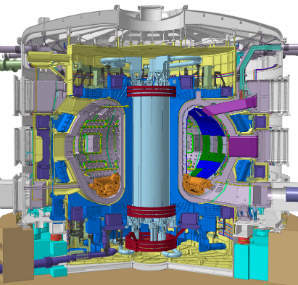ITER is entering "a phase of unprecedented technical complexity and challenges," including schedule delays that need to be addressed immediately.

The international project to build the ITER experimental fusion reactor is entering "a phase of unprecedented technical complexity and challenges," including schedule delays that need to be addressed immediately, the ITER Council has said following its thirteenth meeting.
A team will now come up with an action plan to improve project performance. This plan will be presented in mid-January and evaluated at an Extraordinary Meeting of the ITER Council in early February 2014.
The ITER Council is the governing body of the ITER Organization and is made up of representatives from the seven ITER members: China, the European Union, India, Japan, Korea, Russia and the United States. It met under the chairmanship of Hideyuki Takatsu (Japan) in St Paul-lez-Durance, France on 20-21 November.
The action plan is the Council’s response to an internal, biennial independent assessment that urged changes in both project management and governance. The Council agreed with the assessment’s findings, which indicated that the project faces challenges including schedule delays that need to be addressed immediately.
Design changes approved
The Council also approved two important technical proposals for the design of the divertor and in-vessel coils that will have a positive impact on the performance of ITER.
Operations will commence with a full tungsten divertor, rather than a carbon-fibre divertor that would have been replaced during the second phase of operations with a tungsten divertor. The decision comes after more than two years of R&D and experiments on the tungsten divertor carried out in the Institute of Electrophysical Apparatus (St. Petersburg, Russia) and at JET (UK). The change "will result in cost savings for the project," ITER said
The Council also approved a proposal to include in-vessel coils, which will improve overall plasma stability, in the project baseline.
All seven members also reported that the pace of manufacturing of key components was "progressing steadily."
ITER is targeting first plasma in November 2019, with the start of Deuterium-Tritium operation planned for March 2027, according to a schedule agreed in July 2010.
Photo: The ITER Cryostat (Source: ITER Organization)
